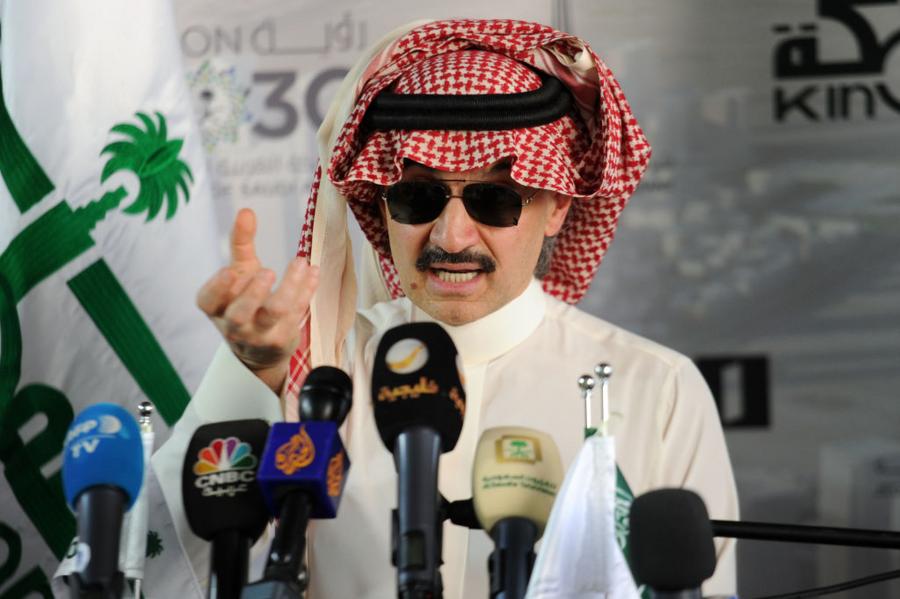Last month, authorities in Saudi Arabia rounded up dozens of the kingdom's most influential players and arrested them. Royals, political honchos, business tycoons – no one was spared because of their wealth or station in Saudi society. These men were sequestered in the Riyadh Ritz Carlton and the city's private airport was closed to prevent others from leaving the country via private jet. But why? Why did the Kingdom's anti-corruption task force go after these high profile members of the country's society?
The men detained are facing various charges of corruption that were handed down by King Salman just hours before the sweeping arrests. The campaign was headed up by Crown Prince Mohammed bin Salman.
Even the famously progressive (for the UAE) Prince Alwaleed bin Talal, billionaire founder of Kingdom Holding, was detained. Billionaire Saleh Kamel and billionaire brother-in-law of the late King Fahd Walid al-Ibrahim, were also arrested. What these three men have in common is that they are all media moguls.

AMER HILABI/AFP/Getty Images
These three billionaires have a large influence on the Saudi media. Together, they founded the companies that have grown into the biggest media companies in the Kingdom. They often partnered with each other to do this. Ibrahim founded the Middle East Broadcasting Center (MEBC) in 1991. Kamel was one of his main investors. In 1994, Kamel founded Arab Radio and Television (ART) in Italy. Alwaleed headed up ART's music channels. He owned the record label Rotana.
The 1990s were a crucial decade in media development in the Arab world. There were not many deals that happened during that time that did not include at least one, if not two, and sometimes all three of these men. Since that time, these three Arab media moguls have controlled media empires that deliver news and entertainment not just to Saudis, but to the majority of people in Arab countries.
It had been reported that King Salman was after the wealth of these three men. Alwaleed has a net worth of $20 billion. In comparison, King Salman has just $500 million. Ibrahim and Kamel are also billionaires. However, it goes deeper than that. Basically, it appears that the arrests in this anti-corruption campaign is all about the Kingdom controlling the media and the messages it delivers.
King Salman's sons own one of the biggest media conglomerates in the Arab world. Saudi Research and Marketing Group (SRMG) began as a publisher and has been expanding into digital media and has plans to launch a financial news network in partnership with Bloomberg. The crown prince's half brothers run the company.
It appears that King Salman and the crown prince plan to take direct control of the media in the kingdom. In fact, employees at al-Arabiya had publicly commented on crown prince Mohammed's attempts to exert control over what they report. It is not just the news that the crown prince wants to control. In May 2016, a royal decree announced the creation of the new General Entertainment Authority. In September 2017, an investment fund with close ties to the crown prince announced a $2.7 billion plan to invest in the creation of entertainment programming for the kingdom.
Before their arrests, Ibrahim and Kamel were Saudi Arabia's undisputed media moguls. They favored liberal programming that was often political in nature. TV dramas imported from Turkey set off controversy within the more religious people of the kingdom. Interestingly, the crown prince also favors this liberal programming.
By arresting and detaining these billionaire media moguls, the crown prince is exerting his leverage over not only some of his kingdom's richest men, but also the messaging and programming their media empires put out. The crown prince is positioning himself to gain control not of these three men's fortunes, but of their media empires.
/2018/03/GettyImages-682013558.jpg)
/2017/11/GettyImages-113138077.jpg)
/2017/11/GettyImages-682011778.jpg)
/2017/11/GettyImages-76082339.jpg)
/2017/11/al.jpg)
/2019/02/GettyImages-1067726862.jpg)
/2020/04/Megan-Fox.jpg)
/2017/02/GettyImages-528215436.jpg)
/2009/09/Brad-Pitt.jpg)
:strip_exif()/2009/09/P-Diddy.jpg)
/2009/09/Cristiano-Ronaldo.jpg)
/2019/10/denzel-washington-1.jpg)
/2020/02/Angelina-Jolie.png)
/2009/09/Jennifer-Aniston.jpg)
:strip_exif()/2015/09/GettyImages-476575299.jpg)
/2020/01/lopez3.jpg)
/2019/11/GettyImages-1094653148.jpg)
/2019/04/rr.jpg)
/2009/11/George-Clooney.jpg)
/2018/03/GettyImages-821622848.jpg)
/2020/06/taylor.png)